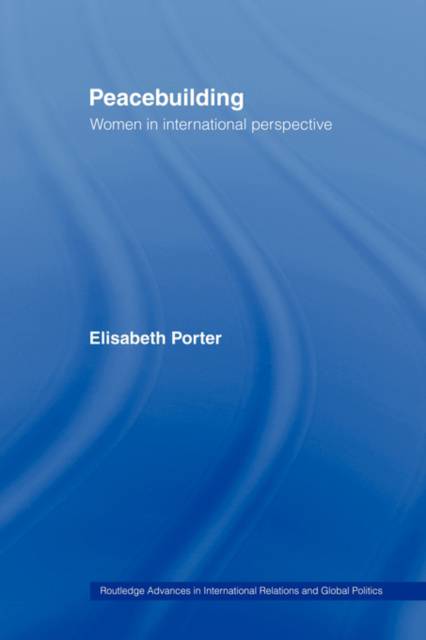
- Retrait gratuit dans votre magasin Club
- 7.000.000 titres dans notre catalogue
- Payer en toute sécurité
- Toujours un magasin près de chez vous
- Retrait gratuit dans votre magasin Club
- 7.000.000 titres dans notre catalogue
- Payer en toute sécurité
- Toujours un magasin près de chez vous
Description
This book clarifies some key ideas and practices underlying peacebuilding; understood broadly as formal and informal peace processes that occur during pre-conflict, conflict and post-conflict transformation.
Applicable to all peacebuilders, Elisabeth Porter highlights positive examples of women's peacebuilding in comparative international contexts. She critically interrogates accepted and entrenched dualisms that prevent meaningful reconciliation, while also examining the harm of othering and the importance of recognition, inclusion and tolerance. Drawing on feminist ethics, the book develops a politics of compassion that defends justice, equality and rights and the need to restore victims' dignity. Complex issues of memory, truth, silence and redress are explored while new ideas on reconciliation and embracing difference emerge.
Many ideas challenge orthodox understandings of peace. The arguments developed here demonstrate how peacebuilding can be understood more broadly than current United Nations and orthodox usages so that women's activities in conflict and transitional societies can be valued as participating in building sustainable peace with justice. Theoretically integrating peace and conflict studies, international relations, political theory and feminist ethics, this book focuses on the lessons to be learned from best practices of peacebuilding situated around the UN Security Council Resolution 1325 on Women, Peace and Security.
Peacebuilding will be of particular interest to peace practitioners and to students and researchers of peace and conflict studies, international relations and gender politics.
Spécifications
Parties prenantes
- Auteur(s) :
- Editeur:
Contenu
- Nombre de pages :
- 248
- Langue:
- Anglais
- Collection :
Caractéristiques
- EAN:
- 9780415479738
- Date de parution :
- 01-10-08
- Format:
- Livre broché
- Format numérique:
- Trade paperback (VS)
- Dimensions :
- 156 mm x 234 mm
- Poids :
- 353 g







